No to Austin, Yes to Barack Obama Elementary: What America is doing to itself with renaming frenzy
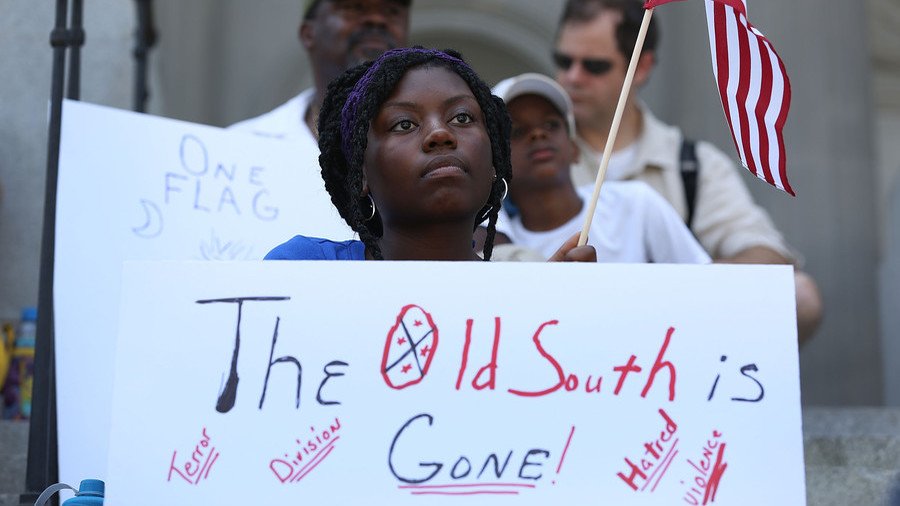
The purge of historical names – Austin, Texas is this week's target – is not about liberals "fighting the legacy of slavery" while conservatives call them "virtue-signaling snowflakes." The battle goes beyond symbols or history.
Most headlines generated by the Austin Equity Office's written assessment of Confederate "hate symbols" focused on the suggestion that the state capital's very name should be reviewed, as 'Father of Texas' Stephen F. Austin, "fought to defend slavery."
But as that step remains unlikely, most of the discussion around that proposal is rendered hypothetical. The same document contained other suggestions attracting less attention, listed as "high priority." For scores of changes of place names, from Tom Green Street, to Dixie Drive, to Plantation Road, which should be renamed because it "recalls [the] 19th century when plantation landowners owned black slaves." The authors also advise waiving the "standard administrative process" for the sake of "efficiencies" – in essence making it easier to push the changes through quickly without objections from locals.
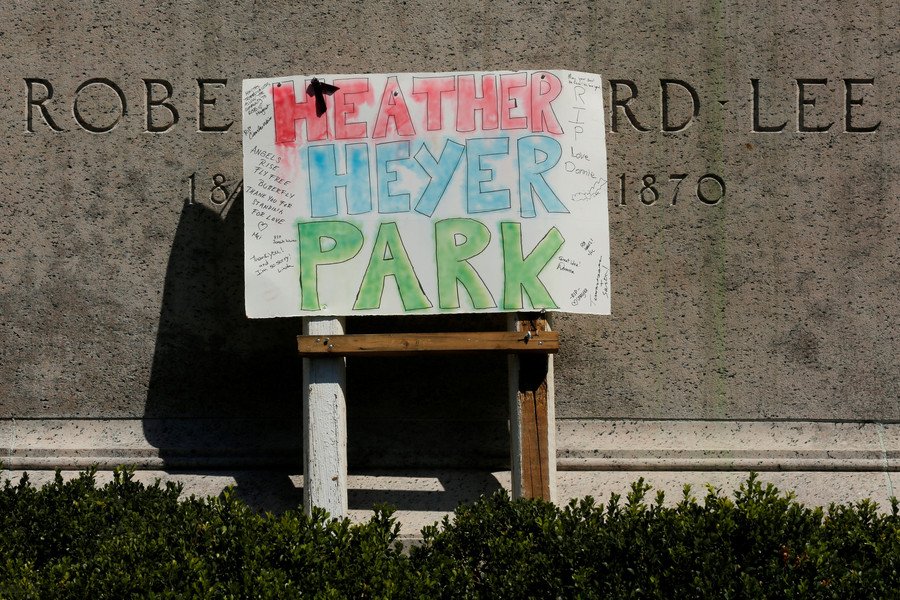
Away from the glare of national media, these proposals are far more likely to succeed. This year alone, Austin has already changed the names of five schools, as well as roads named after Robert E. Lee and Jeff Davis.

And it's not an isolated event, nor does it concern only road names. Here is why the Great Renaming is important.
Across America, hundreds of streets, parks, and schools have had their names changed already, dozens of historical monuments dismantled
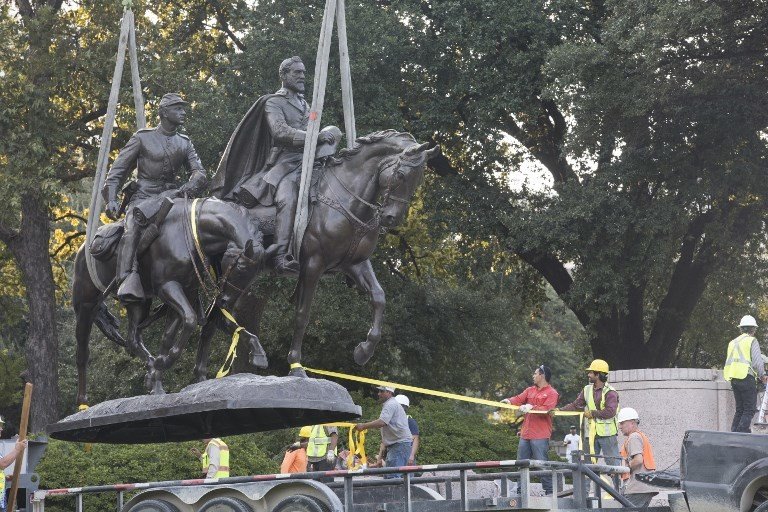
The US underwent its reconciliation after the Civil War – 150 years ago. The Reconstruction Era process may have brushed over deep-seated grievances, left many unpunished, and certainly did not fit present narratives, but it allowed for America in all its complexity to function again, en route to becoming the world's biggest economy just decades later. The detente lasted to this day, and it allowed the Civil War to become history – complex and regrettable, but robbed of its disruptive power. Until, that is, the ghosts were reawakened by those who desire not reconciliation but revolution.
READ MORE: New American Civil War? Some people think it’s already begun
They say America must re-evaluate itself down to its core values, its Founding Fathers, its fundamental symbols, all through the prism of progressive ideology. Some may consider this a laudable aim, but a word of warning: this drive is more likely to start another civil war (or at least produce more divisive candidates for every future election) than it is to result in meek compliance.
The prestigious American Library Association's children's fiction award will no longer be named after Little House on the Prairie author Laura Ingalls Wilder, due to her "flawed and racist" depictions of minorities.
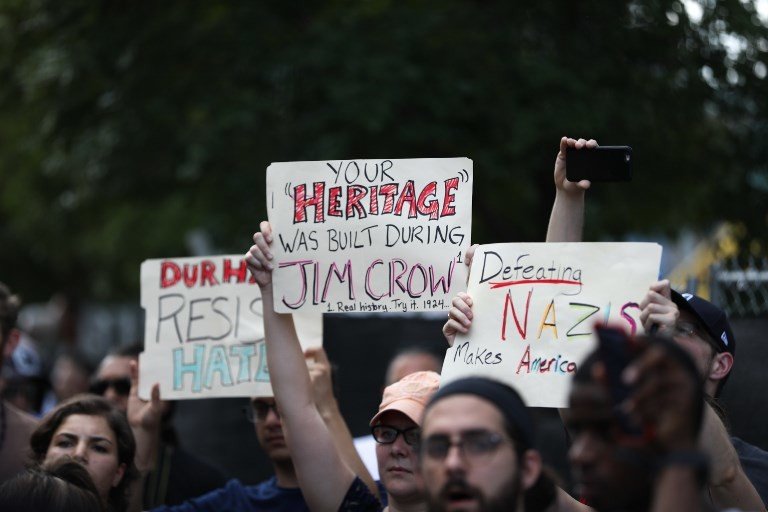
It is alarming enough that books, films and games authored today have to contain not just unobjectionable views, but actively promote political agendas in a way that Stalin's censors might have thought a little overbearing. But what about long-dead authors being forced to conform to present beliefs or face oblivion? Laura Ingalls Wilder may be a minor enough writer to make an easy sacrificial lamb, but is Mark Twain safe (having survived the 20th century censors)? And will there be more grotesquery like the shelving of Harper Lee – a liberal idol literally within the living memory of the schoolchildren to whom she will no longer be taught? You can't throw books into the memory hole in the age of the internet, but collective culture is influenced by school programs, not to mention the fate of authors with singular viewpoints who will fear never being published unless they toe the line.
Black abolitionist Harriet Tubman to replace President Andrew Jackson on the $20 bill (though the Trump administration is notably dragging its feet on the Obama-era decision).
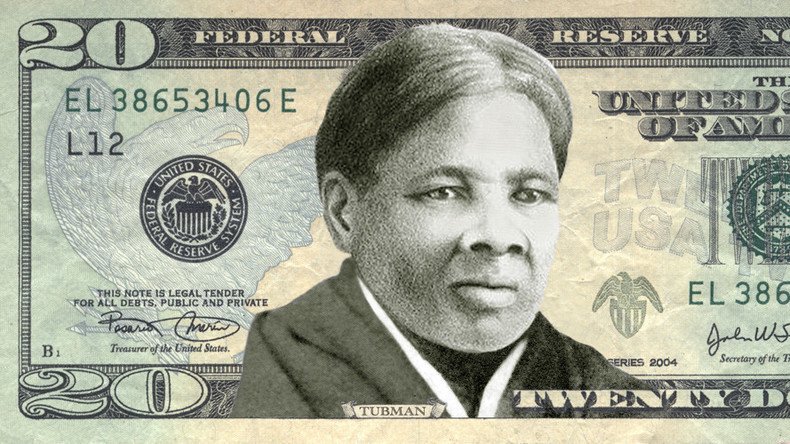
When you melt down old idols (and few are going to be pure enough to pass the new criteria) new ones must take their place. As advocates of these revisionist views would surely agree, it is going to be hard to find figures that shaped American history that are not racist, misogynist, or unpalatable simply by virtue of being middle-aged, land-owning, white Christian men. After all, Harriet Tubman was a remarkable woman, but other than the use of her biography for didactic purposes after her death, it is hard to argue that she is one of the most important 100 people in American history, and she is near the front of the queue for minority historical enshrinement, right behind Martin Luther King (though the proliferation of institutions named after Obama is in full swing).
Is the country's public history going to become a shadow narrative of oppressed minorities, and figures from outside mainstream political battles? Does American history become the history of Mohammed Ali, Louis Armstrong, and Hank Aaron, while the men who created America are banished to historical purgatory, only to be mentioned shamefully with endless caveats? Thomas Jefferson and James Monroe are likely to meet Vladimir Lenin and General Franco in that purgatory, but none of their own contemporaries, as the French and Russians don't hold Napoleon or Catherine the Great (immeasurably more autocratic and cruel leaders) to 21st century left-wing standards.
Where does this stop?
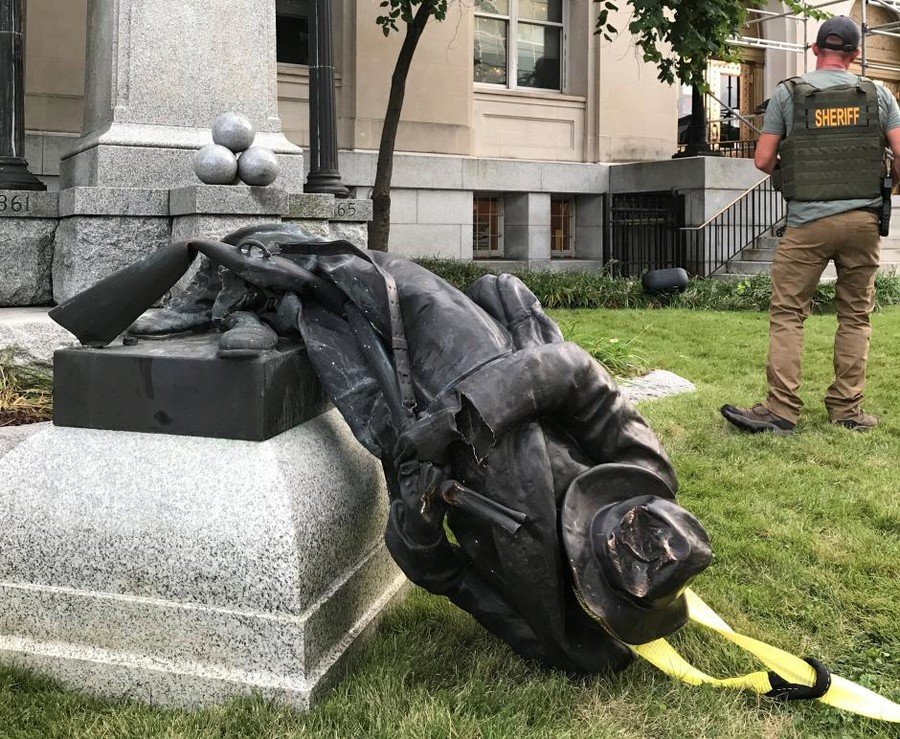
A slippery slope argument in itself carries no weight, but in this context, where 200-year-old sins are being punished, it is legitimate to genuinely ask where to draw the line. It either has be charted arbitrarily (slave-owning George Washington can have his own city, and gay conversion advocate Martin Luther King can have his holiday, but Stephen F. Austin can't) or this process will carry on indefinitely based on political whims. After all, Charlottesville has already renamed Robert E. Lee Park to Emancipation Park after the high-profile clashes in 2017, to Market Street Park last month, since the previous name also proved divisive. Hopefully, the endpoint will not be a new map where Washington is called Government City or North-East Metropolis 1, but a time when America steps back from its ersatz Cultural Revolution.
Igor Ogorodnev
Subscribe to RT newsletter to get stories the mainstream media won’t tell you.














